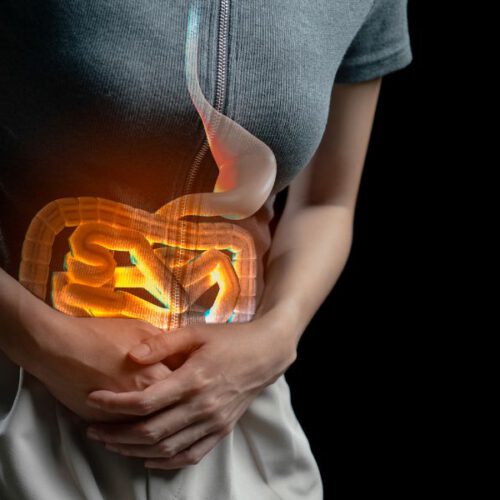Evaluate your priorities and understand that the effects of THC vary; educate yourself thoroughly on both the benefits and potential risks to make informed choices. Consider opting for products like a delta 8 cart, which might offer a milder psychoactive experience, possibly leading to fewer side effects, though individual experiences can differ. Always start with a low dosage and gradually adjust based on your body’s response to find a balance that ensures safety and efficacy. Prioritize legal and safe sourcing; ensure the THC products are from reputable vendors and lab-tested for purity and potency, minimizing health risks.
Health Effects of THC
Potential Benefits
Exploring the potential benefits of THC (tetrahydrocannabinol), particularly for health-conscious individuals, reveals a number of promising therapeutic effects. One of the most notable benefits is pain relief, making THC a popular option for those managing chronic pain conditions. By interacting with the body’s endocannabinoid system, THC can help alleviate discomfort and improve overall quality of life. For many individuals exploring new wellness trends, THC gummies provide an accessible and manageable way to experience these effects.
Moreover, THC has shown potential in enhancing mood and aiding relaxation. People dealing with stress or anxiety may find that THC can offer temporary relief by creating a sense of calm and reducing emotional tension. Despite the ongoing need for further research, current studies suggest these benefits can positively impact mental well-being and support emotional resilience, encouraging a state of balance in everyday life.
In addition to these effects, some research indicates THC could play a role in stimulating appetite and reducing nausea, which can be particularly beneficial for those undergoing treatments like chemotherapy. While there is much more to learn about the medicinal properties of THC, its potential to support inner healing and contribute to practical lifestyle transformations is certainly worth exploring.

Risks and Side Effects
THC, a primary component of cannabis, has gained attention for its potential health benefits, but it’s important to be aware of the risks and side effects associated with its use. One significant concern is the potential for developing a dependence on THC. Regular use can lead to tolerance, meaning more significant amounts are needed to achieve the same effects, which in turn increases the risk of dependence. This can affect not just physical health, but also mental well-being and relationships.
Another notable risk is cognitive impairment. THC consumption, especially in large quantities or over prolonged periods, can impair short-term memory, concentration, and decision-making abilities. This is particularly concerning for younger adults, as their brains are still developing.
Additionally, THC can exacerbate anxiety or trigger mental health issues in some individuals, especially those with a predisposition to conditions like schizophrenia. It’s crucial to consider your mental health history and approach THC consumption cautiously if you have any concerns.
Physical risks include increased heart rate and potential impacts on lung health if smoked. It’s always wise to weigh these risks against potential benefits and consult with a healthcare professional for personalized advice. Prioritizing inner healing and making informed, balanced lifestyle choices can help mitigate these risks.
Safety Considerations
Dosage and Consumption Methods
When consuming THC, it’s essential to understand the differences between methods to ensure a safe and enjoyable experience. Smoking or vaping THC products offers rapid effects, which can be beneficial for those seeking immediate relief. However, it’s crucial to start with small amounts since the effects are felt quickly. For those who prefer edibles, patience is key. These take longer to kick in, often up to two hours, and the effects last considerably longer. Begin with low doses, typically 5-10 mg of THC, and wait to gauge the full impact before considering more. Hydration and a calming environment can enhance your experience, regardless of the method. As always, it’s wise to avoid mixing THC with alcohol or other substances, which may intensify its effects unexpectedly. By respecting these guidelines and listening to your body’s signals, you can foster a safe and informed approach to using THC, fulfilling both healing and wellness goals.

Legal and Social Considerations
The legal status of THC varies widely across the globe, reflecting diverse social attitudes toward its use. In many regions, there is a growing recognition of THC’s potential health benefits, leading to its legalization or decriminalization for medicinal and recreational purposes. Countries like Canada and several U.S. states have embraced this trend, regulating THC to minimize harmful effects and supporting informed consumer choices. Conversely, in some areas, THC remains illegal due to concerns about addiction and health impacts, reflecting more conservative social views. This legal patchwork influences public perceptions, with communities often split between acknowledging therapeutic benefits and fearing misuse. For health-conscious individuals, understanding the sociopolitical landscape helps navigate these complexities, facilitating informed decisions about THC use. Staying updated on evolving regulations within one’s locality is crucial, as laws are subject to change. This knowledge empowers individuals to make choices aligned with their personal health goals, while adhering to local legal standards.
Public Health Perspective
Impact on Public Health
The widespread use of THC presents significant challenges and opportunities for public health systems. While THC may offer relief for certain medical conditions, its broader implications on mental and physical well-being require careful consideration. Increased usage can lead to higher cases of cannabis use disorder and potential mental health issues, putting a strain on healthcare resources. Public health campaigns are crucial in educating individuals about safe consumption practices and potential risks, such as impaired driving or interactions with other medications. Emphasizing inner healing and balanced lifestyle choices can empower individuals to make informed decisions, ultimately fostering a healthier community.
Policy Developments
Recent changes in the legal status of THC in various regions highlight a shift towards more lenient cannabis laws. This evolution aims to regulate THC usage while ensuring public safety. By allowing controlled access and promoting education on safe consumption practices, these policies strive to reduce illegal market activities and prevent misuse. However, potential impacts on driving safety and workplace policies remain points of concern. As these laws develop, ongoing research and public health campaigns are crucial in fostering informed consumer choices and safeguarding community well-being.
Tips for Responsible Use
Assessing Personal Health Risks
Before considering THC use, it’s important to evaluate your personal health risks carefully. Start by assessing your mental health, as THC can potentially affect mood, anxiety, and cognitive functions. If you have a history of mental health issues, consult with a healthcare provider. Consider any underlying physical health conditions, such as heart disease, as THC can impact heart rate and blood pressure. Additionally, review your current medications to avoid adverse interactions. If you’re pregnant or planning to become pregnant, consult a professional, as THC may affect fetal development. Understanding these factors can guide safe and informed THC use.
Choosing Quality Products
When choosing THC products, prioritize safety and quality by researching thoroughly. Opt for products from reputable brands that conduct third-party lab testing to ensure purity and potency, available on their website for transparency. Check labels for clear information on THC and CBD concentrations, which helps manage dosage and effects responsibly. Look for organic cultivation practices, as these tend to have fewer harmful chemicals. Consider starting with lower THC options, especially if you’re new to cannabis, allowing your body to adjust gradually. Trust your instincts and avoid products with extravagant claims, focusing instead on those with solid consumer reviews and certifications.
Conclusion
In conclusion, understanding the health effects and safety considerations of THC is crucial for making informed choices. While THC has potential therapeutic benefits, such as pain relief and appetite stimulation, it also carries risks like impaired cognitive function and potential dependency. By being aware of how THC interacts with your body and lifestyle, you can make decisions that prioritize your well-being. Balancing the benefits with safety requires thorough research and consulting with healthcare professionals. In a landscape where information can often be overwhelming, staying informed can empower you to navigate your health journey thoughtfully. Embrace the knowledge to ensure that any decision regarding THC use aligns with your personal health goals and lifestyle needs. Remember, the key is to approach THC with a well-rounded understanding, focusing on its potential for inner healing while keeping safety at the forefront.




